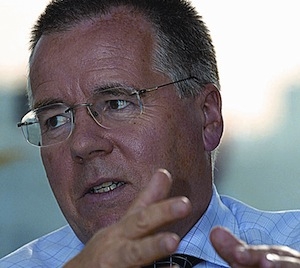Leading Sipps expert John Moret has blamed rising regulatory burden for the demise of smaller specialist providers.
The Principal of MoretoSipps has hit out at the actions of the old regulator, the FSA. He claimed that “regulatory inertia” was “the biggest scandal” of the sector.
The recent sales of Rowanmoor and EPML within a few days of each other – for contrasting reasons - marks the end of an era, Mr Moret said.
Writing exclusively for sister website Sipps Professional, Mr Moret said: “Having been involved with Sipps since day one I find the demise of so many smaller specialist Sipps providers disappointing –and I believe it is largely a consequence of the increased regulatory burden.”
Mr Moret, known as Mr Sipp by some, for his vast knowledge and experience of the sector, said: “I believe much of the collateral damage that has been caused to Sipp investors –and to advisers and Sipp businesses through some ill-conceived compensation schemes – could have been avoided had the FSA got to grips with understanding the Sipp market much sooner.
“Their first thematic review of Sipp operators issued in September 2009 included the statement ‘We do not believe that, taken as a whole, small Sipp operators pose a significant threat to our statutory objectives’.
“How they must regret those words.”
He expects further consolidation, as the deadline looms large for the new capital adequacy rules. These come into effect next month.
Mr Moret said: “There are still too many smaller Sipp providers allowing bespoke investments at a time when revenues are falling.
“The continuing reduction in bank interest rates will take a toll – even prior to the latest cut in bank rates one major provider had announced a reduction in its rates payable on deposits and as a result of the latest change it will be paying no interest on any balance regardless of size.
“I suspect other providers will follow suit. We’ve also seen news that one smaller provider is planning to make a one off charge for the work it has undertaken to meet the regulatory changes.”
To read his column in full click here.

